Sydney 2025 -The Perfect Marathon
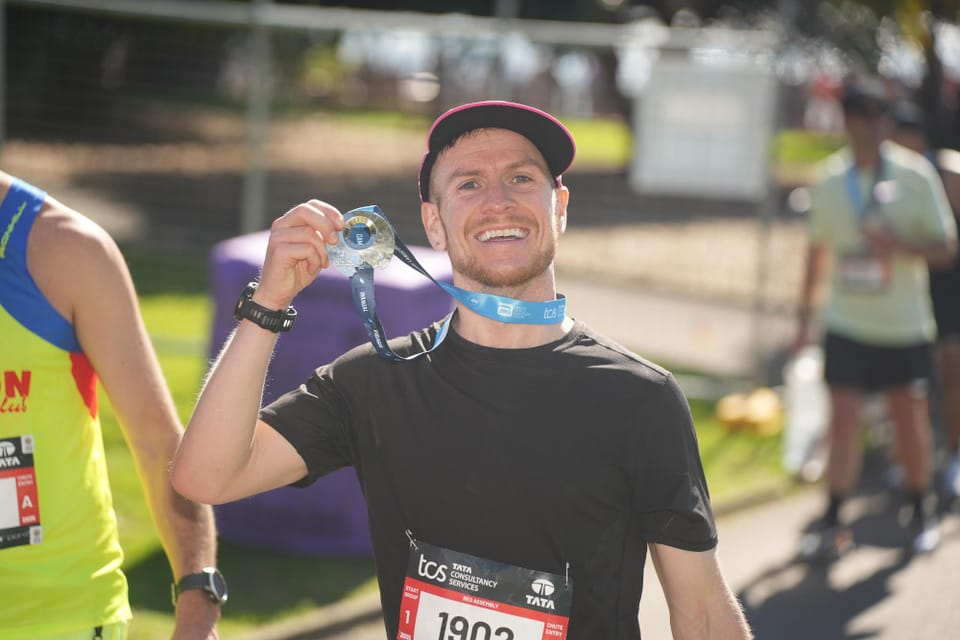
"I’m convinced that everyone should take a big swing at some point in their life and experience what it’s like to truly go all in on a meaningful pursuit otherwise they grow bitter with age." Jay Yang
It clicked. Disconcertingly loud as I fell to my knees. Descending Skiddaw at pace three weeks before a world marathon major seemed reckless now that I was on the ground in excruciating pain.
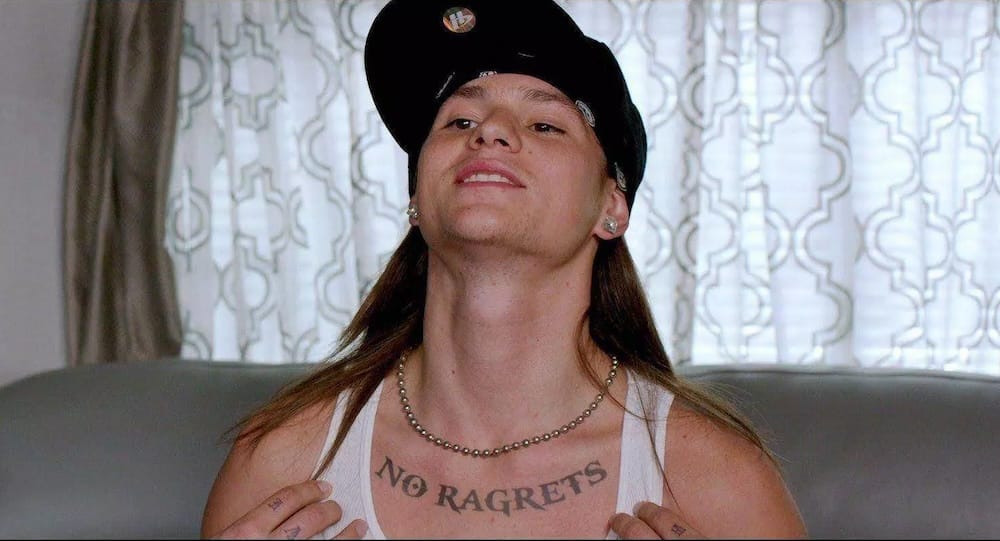
Having completed my sixth star in Tokyo in 2024 I was sincerely of the view that I would not run another road marathon. I had completed the holy grail of marathon running, learned a lot along the way, and wanted to focus my energy on other things that gave me more fulfilment.
When Sydney was announced as the 7th major marathon, my opinion changed. Cape Town and Shanghai look like they will become the 8th and 9th major marathons, and yes, I fully intend to do them too.
Over the years of training for marathons I have tried an abundance of different training approaches. I had gotten results from destroying my body with hyper-intense training - I ran an incredible time in Berlin (2016) for example, but also ended up severely underweight with an eating disorder. 7 years later I PB'd in Manchester off the back of 40 mile weeks.
Approaching Sydney, I had no desire to put myself through another intensive training block to the detriment of my social life, career, and other interests and hobbies. I had no intention or desire to PB but rather wanted to demonstrate to myself that you can do impressive things whilst still living (and enjoying) your life.
"Work on impressing yourself. People move on a week after you die." [X]
Training
I planned to do 16 weeks of training. My intention was to play it by ear and train to feel with a focus on quality over quantity.
My hot take is that too many people print off training plans from the Internet that are premised around the idea that more miles = faster times. My experience over the years, and what I see across my peers is that this is basically never the case unless you are working at the margins of performance improvement (I.E. sub 2:30 marathoners).
Whilst I had taken over a year off post Two Oceans and had been regularly visiting the physio, I had not been doing my prescribed physio exercises nor had I been doing the strengthening work that I probably should have been. As such I wasn't starting the block with a perfectly conditioned body.
In that year out I had gone all in on Hot Yoga and Inferno Pilates. I often mention to people that I supplement my running with a lot of Yoga and I am often met with eye rolls. Hot Yoga is insanely hard - it's in my opinion vastly more cardiovascularly intense than your average track session, and also has the added benefit that I can now do an abundance of badass balances. Inferno Pilates is a lot of glute bridge in 40 degree (celcius) heat - I credit it for my insane quad and glute strength.
I was really surprised by how tough it was to get back to any level of fitness after a year off. It was physically tough, but it was more the mental side of things. To do something hard, you really have to want it, and the whole living my life thing made me doubt if I really wanted it enough at times. My view is that the marathon is 70% mental, 30% fitness so I think that feeling shit and still getting it done is the crux training. Ultimately I think that my marathon edge is that my mental game is on point - I am exceptionally good at locking on to a goal and getting it done.
I did:
- Trail running. I did trail runs every two weeks. It's hillier, and its harder but as a result you don't care about the times. The people I run with happen to all be super cool, and sociable. This was very much me living my life, doing fun things with fun people, in beautiful places and getting a training benefit for free.
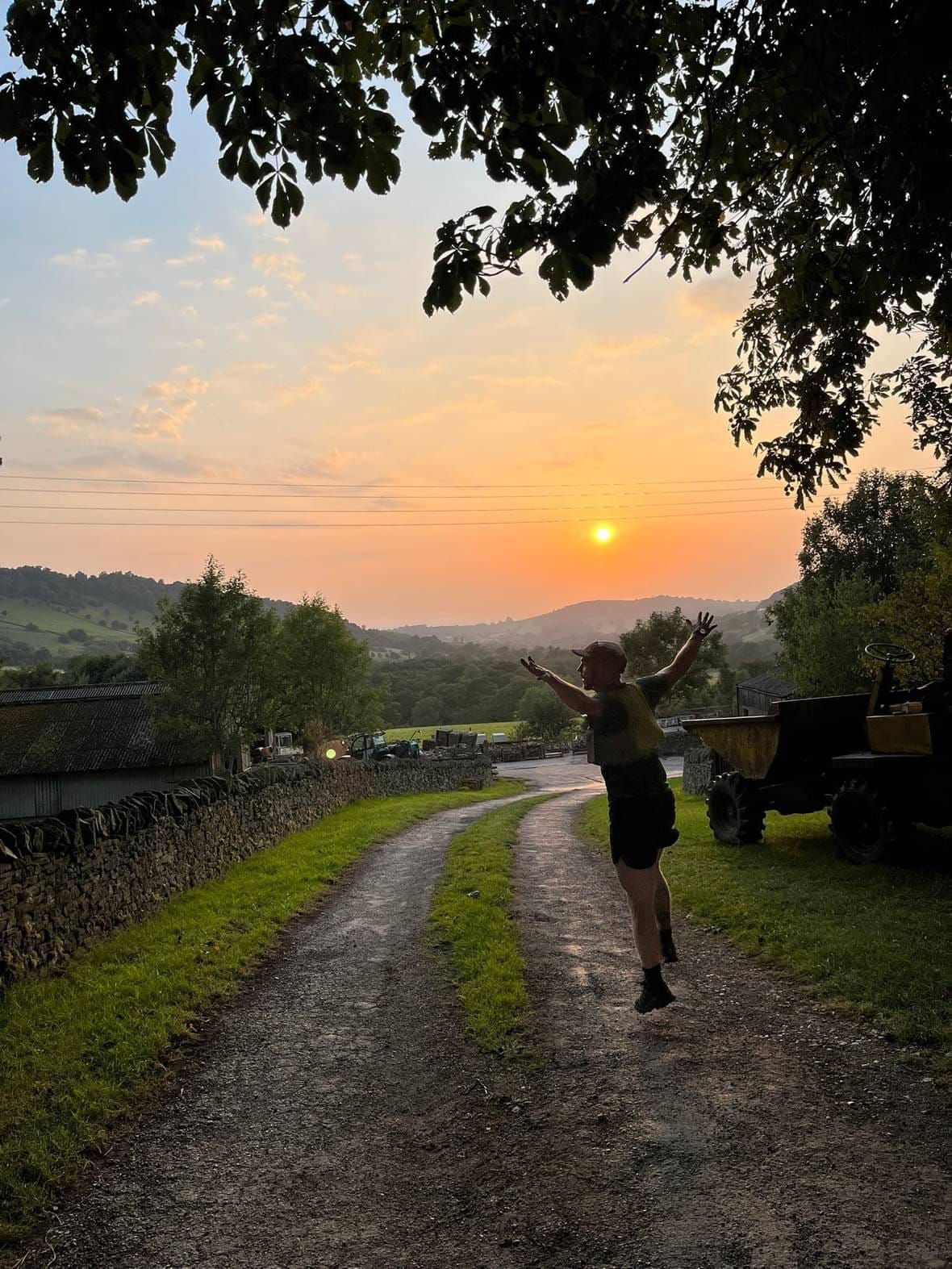
- Reps sessions. I did 4 or 5 reps sessions. Intervals at pace with the intention of improving top end speed. Always painful.
- parkrun. I did parkrun most weeks. I did a test piece 2 weeks out and ran a 17:52. I think that you need to run 18:30 5k for sub-3. Most of them were around the 19 minute mark.
- Long runs. I didn't really do any formulaic long runs, I just took opportunities when presented to do cool shit with cool people. It's the biggest privilege I have to be able to just say 'Yes' when people invite you on pretty ridiculous adventures.
- I ran the Welsh 3000s at the end of June. 35 miles, 14,000 foot of elevation.
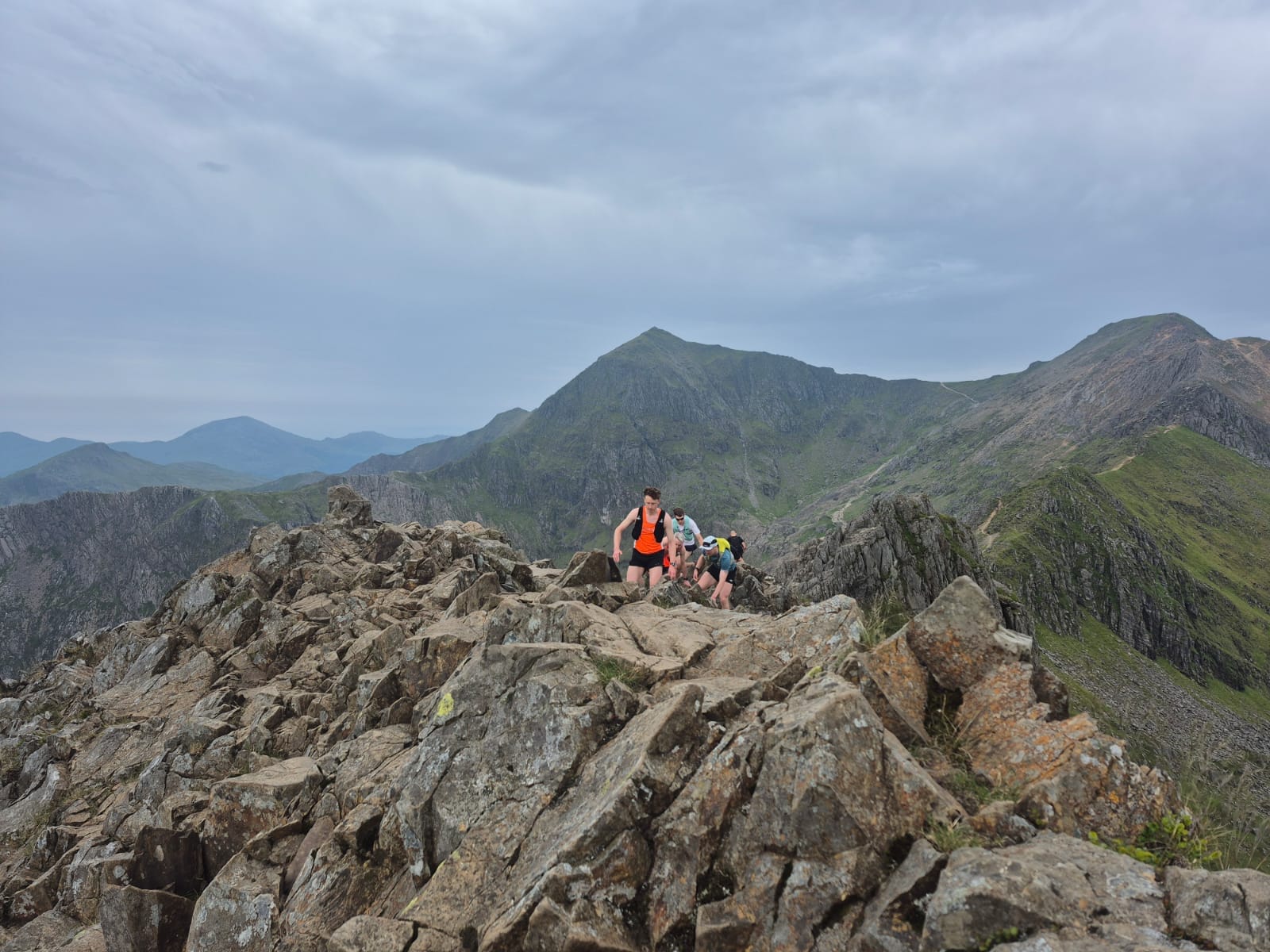
- I went and solo'd Leg 2 of the Bob Graham Round a week later. 15 miles, 7000 foot of elevation gain.
- I ran a marathon from Cannes to Antibes. I was in Cannes for work and hadn't done any running as I'd been busy. I got stranded due to Air Traffic Control strikes, and I wanted to see Antibes..
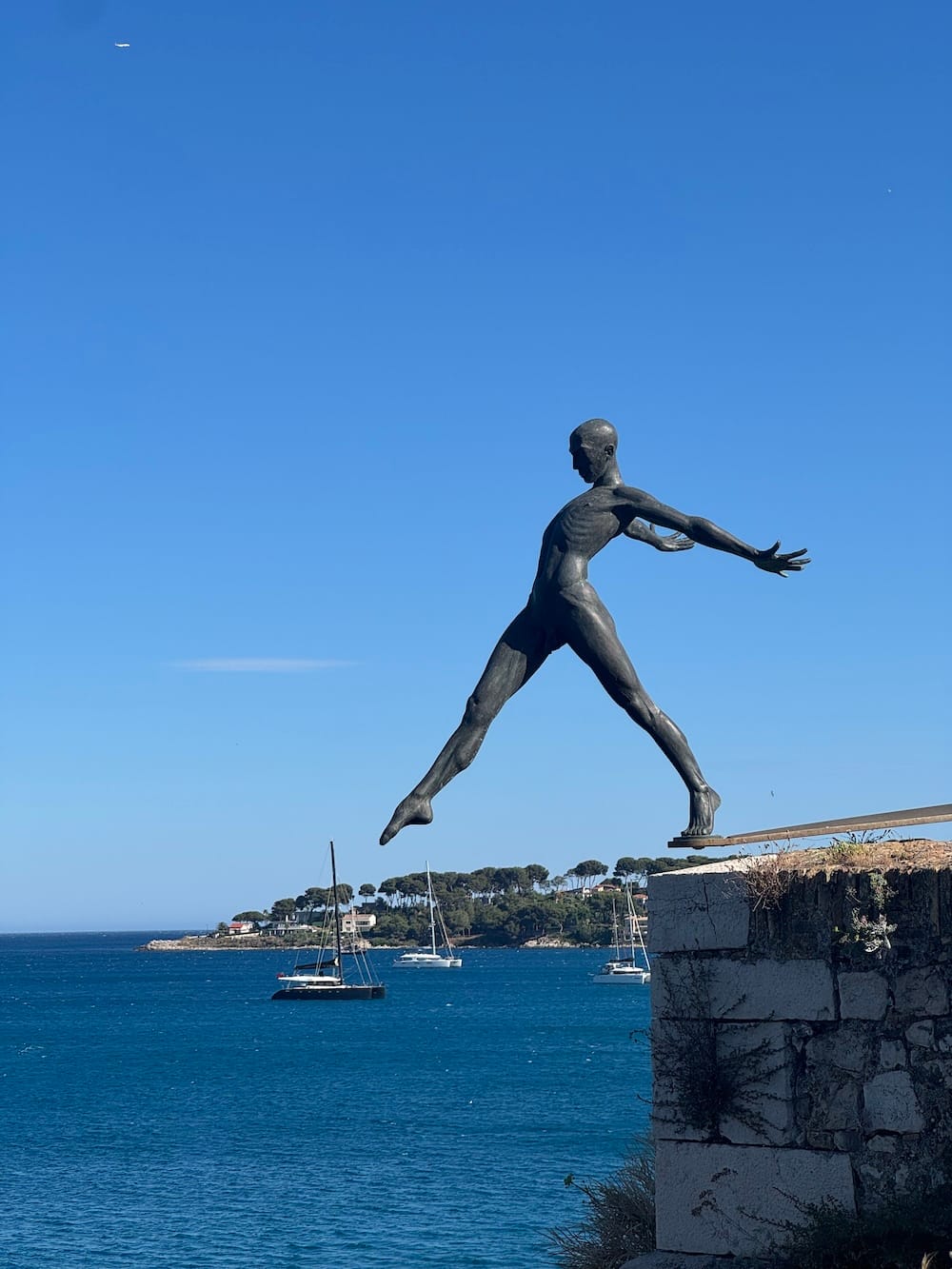
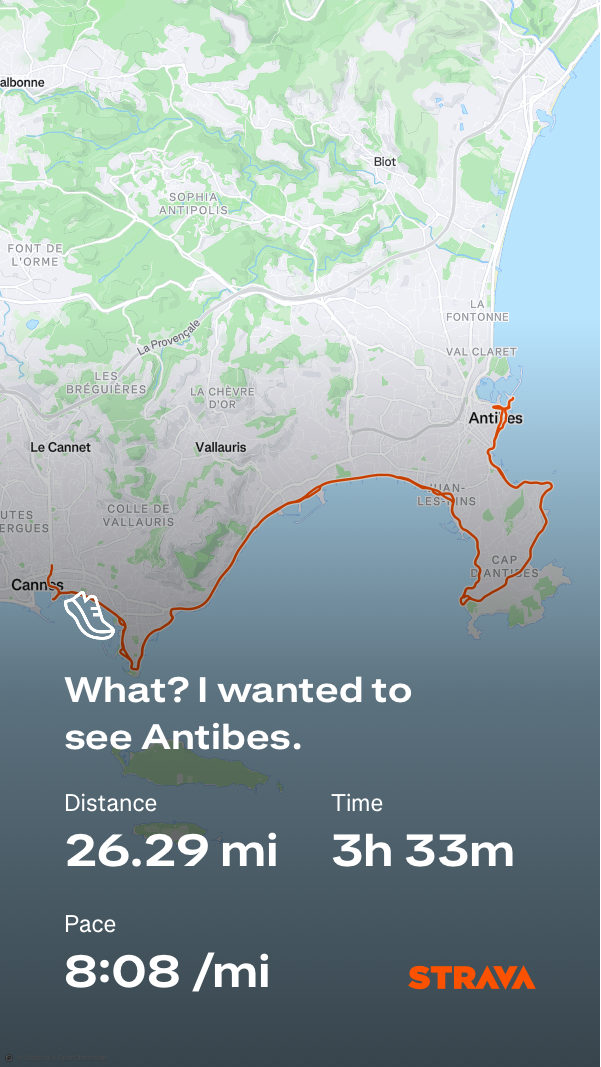
- I ran a 22.5 mile long run with the boys 2 weeks out because I needed to know that I could get it done.
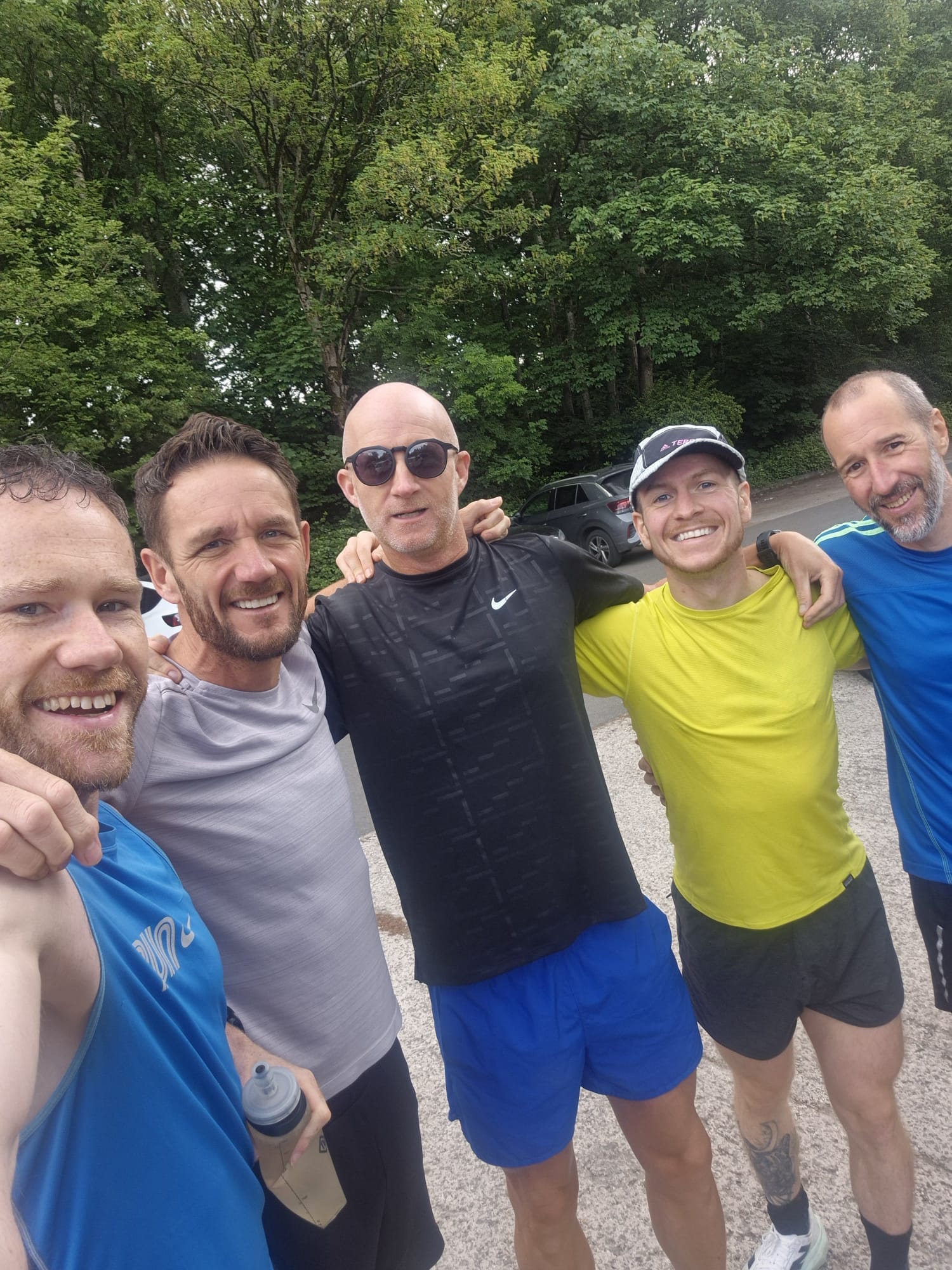
- Cycling. It would probably be remiss of me to not include the two 125 mile cycle rides I did. Again, just things I enjoy doing but they obviously have training benefits. I didn't really do any other cycling (apart from work commutes) so I was actually surprised by how easy these rides were.
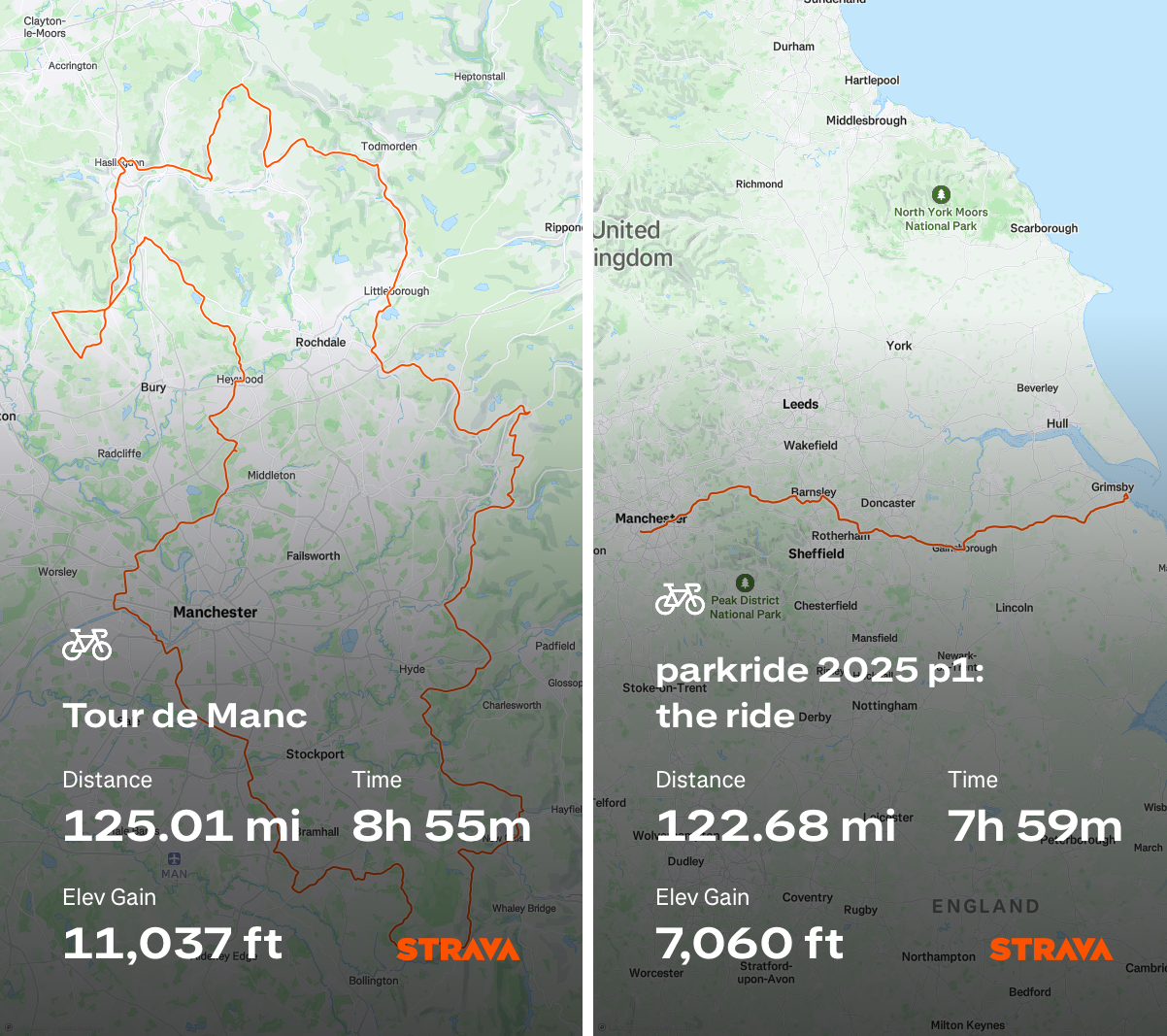
I think ultimately, even though it certainly wasn't easy getting back to fitness, the concept of global base is very very real. I've run for a long time, and my body is fairly well tuned to fitness. Even when I'm not running I'm usually doing something else at a fairly high intensity so even if not running specific, my fitness base is always very high.
I averaged 29 miles a week of running over a 16 week training block. I knew that quality over quantity worked, but this is astonishing to me.
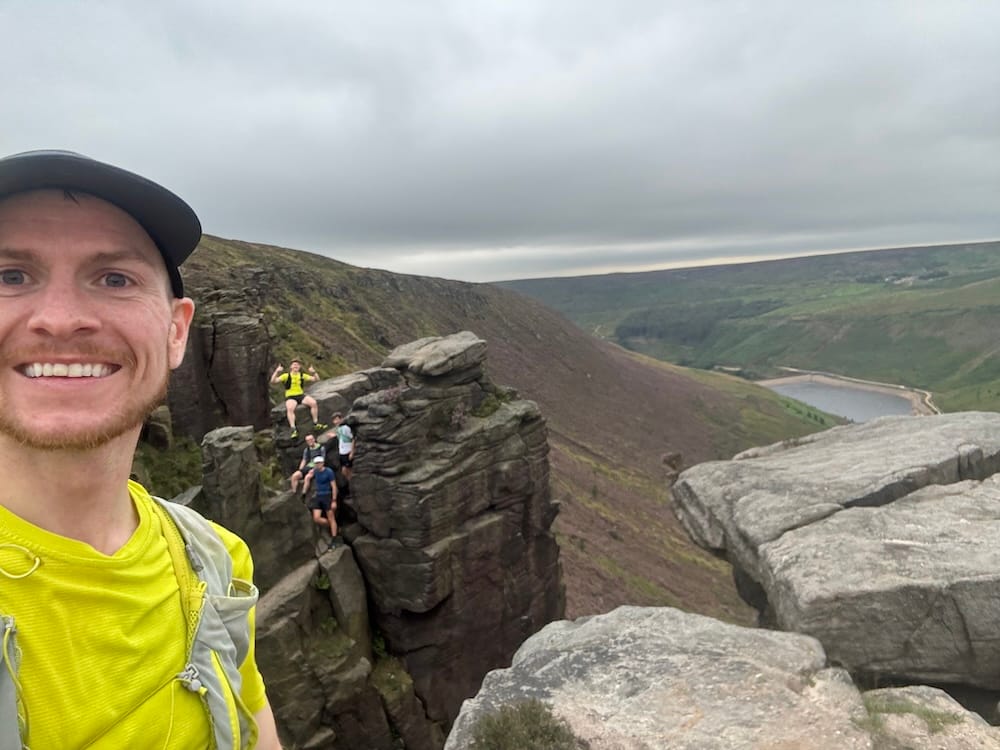
What went wrong
I think the most fascinating elements of my training were the things that went wrong.
Food poisoning.
Post Cannes, I ate some sausages, got the worst food poisoning of my life and died a death for two weeks during the most critical weeks of my training. I tried coming back too quickly and had some enjoyable runs aptly named 'No bueno' and 'Still no bueno'. That illness fucked up my training and I was momentarily a little flustered noting that if your approach boils down to doing the bare minimum and then something happens you have absolutely no buffer.
I used to love rice pudding, but after 2 weeks of eating it for basically every meal..
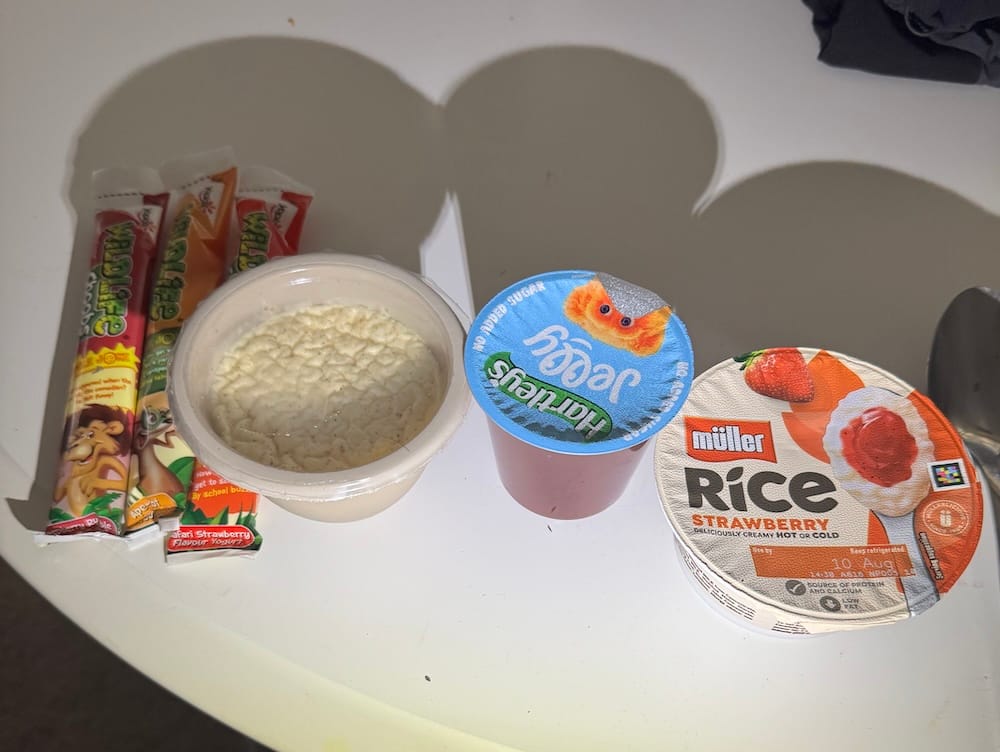
Partial Ligament Tear
The other 'this has no gone according to plan' moment was referenced in the first paragraph of this post. I decided to go and run 14 miles in the Lake District 3 weeks out from Sydney. I fell descending Skiddaw and heard my ankle crack. I was in excruciating pain for about 10 minutes as we contemplated a Mountain Rescue callout. Fortunately it eased off and I was able to run back to the car. You'd think that if you can run back to the car, it can't be that bad but sadly.. no.
I continued training and after doing the 22.5 mile long run (mentioned above) 2 weeks out my ankle blew up - it was massively inflamed and the top of my foot hurt significantly when I walked.
I initiated the Total Taper approach to tapering where you literally do no running, cross your fingers, and hope. I'd previously done a 1 week total taper for Manchester (where I PB'd), and based on how Sydney ultimately turned out I think the 2 week Total Taper is actually the correct way to taper for a marathon, regardless of injury..
Ultimately, the end result suggests that the illness wasn't a dealbreaker, nor was the ankle. I owe a lot to my physios who worked some magic on the ankle - did you know that ligament massage is a thing?
Pre race
I flew to Sydney via Dubai in an attempt to vaguely minimize the effects of jetlag. I landed in Sydney at 6am on the 27th (4 days out), and then had to battle to stay awake so as to go to bed on an AEST schedule. The short version is that 4 days probably isn't enough to fully counterbalance the lag, but I also wouldn't want to spend 5+ days on the ground with pre-race anxiety.
The next morning I went to the expo. I'd woken up early so I went first thing. I had no issues - I was through in about 15 minutes, tried some awful samples, bought a jacket, and left. Others had a much worse experience apparently.
One character trait of mine that I am immensely appreciative of is my ability to talk to anyone about anything. One of my favourite life experiences was spending 9 hours talking to a human rights lawyer on a flight back from Denver.
The hotel that I had booked in Sydney had a 'social hour'. One evening I attended it and ended up chatting to an incredible Australian couple. Shortly after they pointed out a woman who they had previously met who was running the marathon. I headed on over and asked the simple but now somewhat infamous question "Are you running the marathon?", and well.. the rest is history.
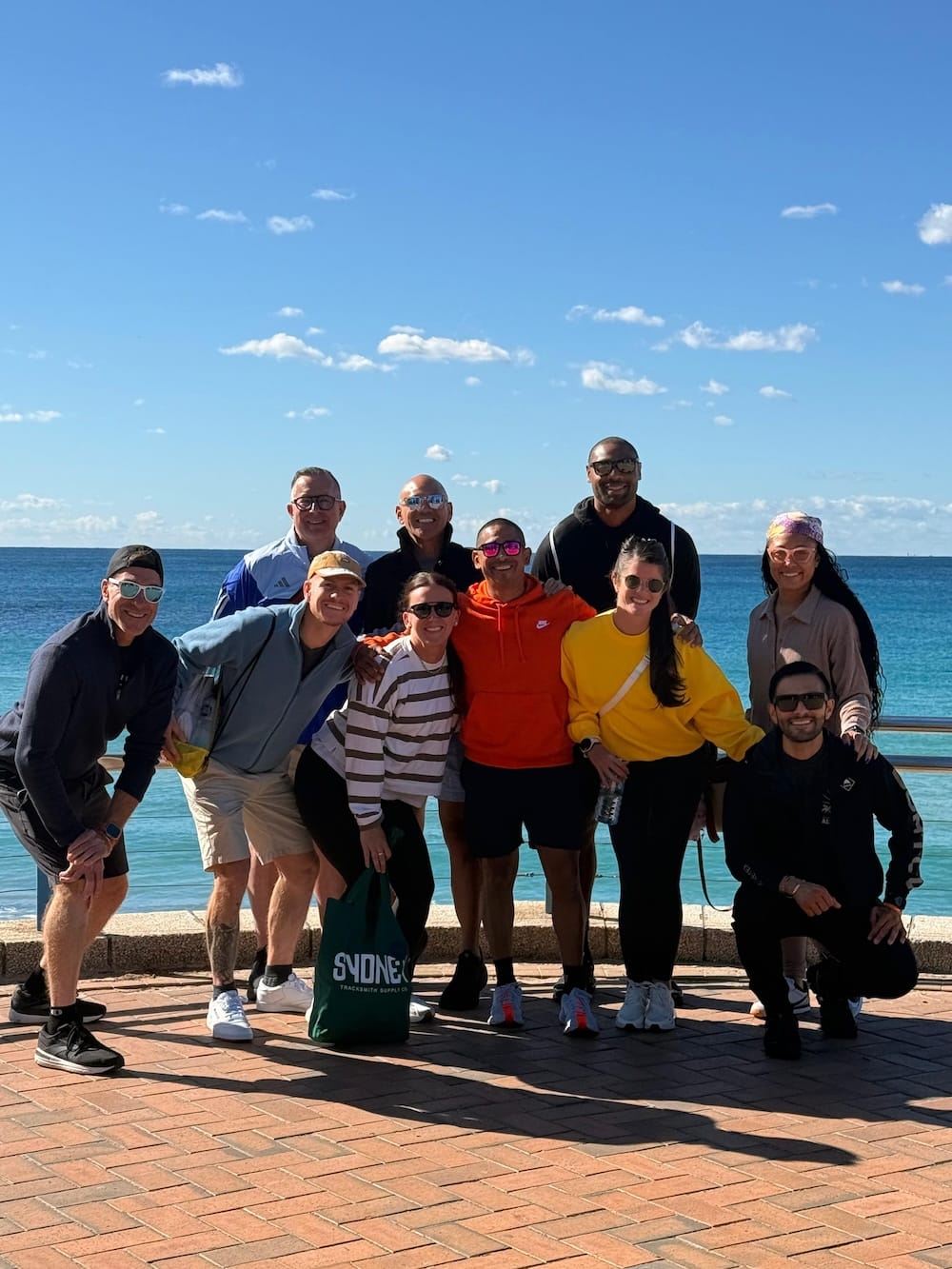
Most of the group were New Yorkers. Many were friends of friends, all connected by the hilarious John. Others had joined at previous marathons, and some in Sydney. There were a number of occasions where I queried how someone was connected to find out that, like me, they hadn't known any of these people 24 hours previously.
One thing that I have noticed over the years is that runners are super chill, and generally always awesome. The training requirements for running a marathon often include early morning runs. My logic is that bad people don't get up early, and bad people don't do hard things. Rather they spend their vampire energy bringing people down and adding nothing to world - I digress..
Over the course of my majors journey I have travelled solo, with family, with previous partners etc. Every experience was completely different. I trained for Boston in Vancouver with the infamous Forerunners. When I went to Tokyo I met a friend from a previous major adventure on the start line in a crowd of 30,000+ people. He paced me through 17 miles. Post race I ate Sushi with friends I'd made when I'd ran New York, who I'm now going to go back to support (and possibly pace). When I ran Comrades in 2022 I stayed in an AirBnb the night before. The rental owners invited me over for dinner and then came out to support me on the course. During that same race a stranger gave me an impromptu deep heat quad massage with 26 miles to go because I was in a disgusting amount of muscular pain.
Some of the best experiences of my life were made and supported by strangers. Strangers who are now lifelong friends.
The next few days involved the infamous Coogee to Bondi walk, a visit to the Bondi Icebergs Club, and an abundance of fun meals.
On the Saturday I ran a local parkrun (of course). This was the first run I'd done in two weeks and was very much a 'is my ankle OK' test piece. I'd been doing a lot of walking around over the previous couple of days and my ankle was giving me a certain level of anxiety. I got around parkrun fine, but it did hurt. There had been a time when it had originally blown up where I had considered deferring my entry because I didn't want to fail. For a start.. you can't defer your entry, but even if you could, when I reflected.. well.. the following quote nails it:
the fastest way to kill motivation is to make your identity depend on the outcome. it’s called ego involvement. when failing becomes failing as a person, your brain starts avoiding the whole thing. not because you don’t care, but because you care too much.
I am so so aware that caring too much really negatively effected my Chicago experience. The whole premise of my training approach this time was about caring less and seeing what happened. That said, old habits die hard.
I recall John asking me that evening how my ankle was, and then what my goal was. I said something akin to "I'm going to run sub-3", and he nodded. My view is that to be able to do anything, you first have to be able to say it.
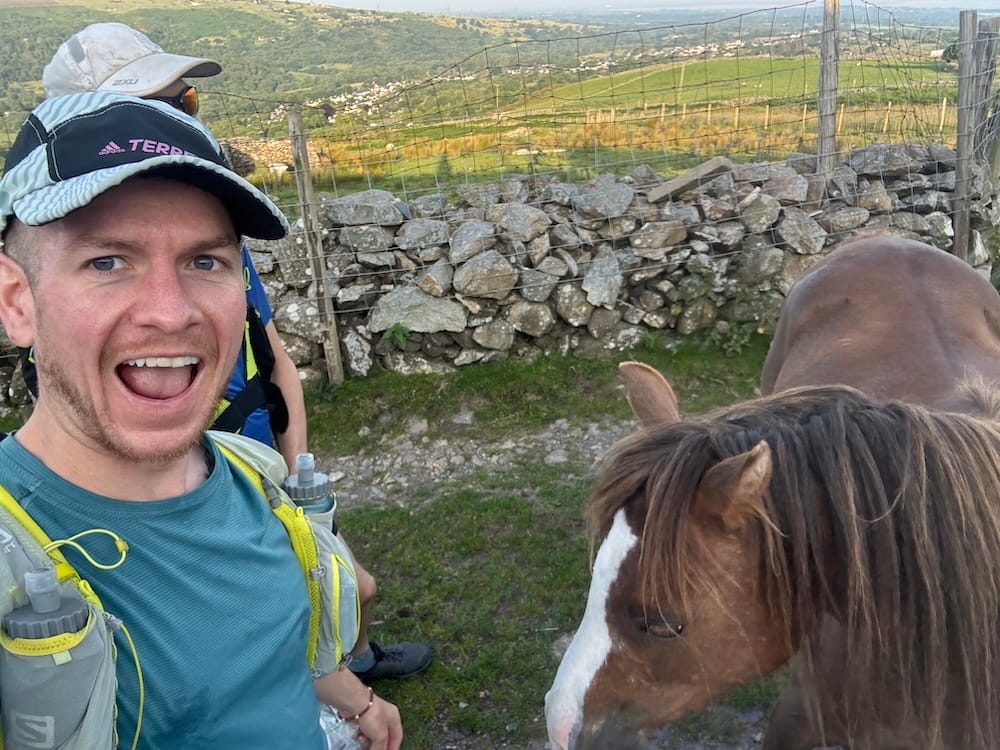
The Race
There is an unfolding branch of evolutionary Psychology that is researching the sentiment that belief is a biological advantage. It's the academic representation of my general life mantra - go big or go home. I've also historically referred to it as 'No Plan B' - A Plan B is a plan to fail.
The Sydney course starts off with a brutal descent. My only goal was to run under 3 hours as I have done that at all of the other majors. I targeted a 2:58 with a bit of leeway for any additional distance. The plan was to push the pace on the descents and reel it in on the ascents, with a focus on 5k splits rather than mile splits noting the ridiculous inconsistency in the Sydney marathon course profile. I wrote down on the hotels headed notepaper where the hills were with the intention of taking gels arbitrarily in advance of those climbs.
I went out ever so slightly too fast over the first two 5k splits. I wasn't overzealous, it was simply that the descent off the Sydney Harbour Bridge is really steep and its more stress on the legs slowing down compared to a 'controlled fall'.
After 10k my legs were pretty beat up, and I was slightly concerned noting that the hills were on their way. I am an endurance runner, I get better with distance and one thing that I've learned from experience is that my mental game on course is astonishingly good.
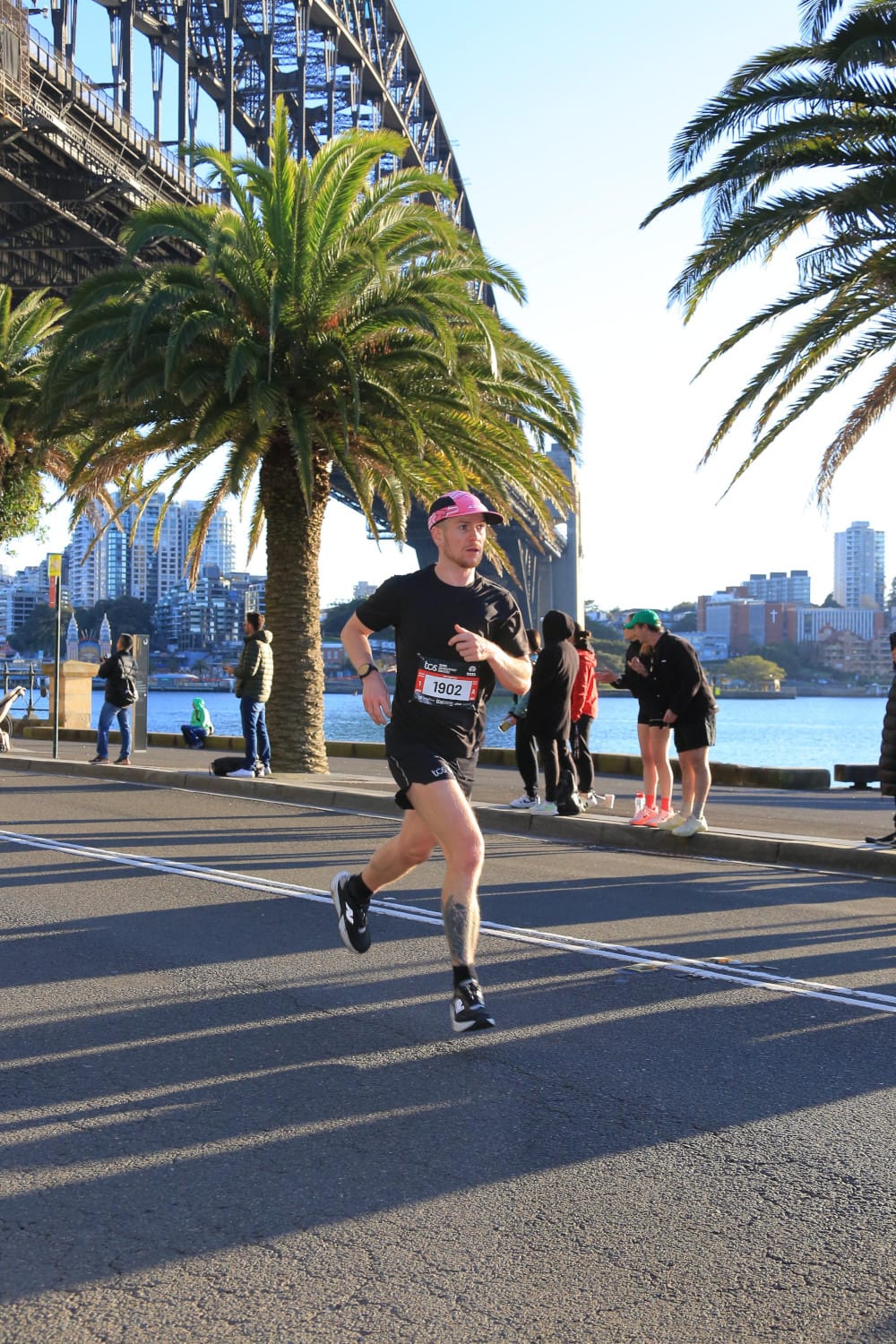
Over the days prior to the race I had inadvertently recced parts of the course. I was aware of the short but steep hill at 12km, and as such took a gel before - 8k. The hill was not insanely hard, partially because the support on the course was incredible. The support wasn't consistent, but it was always there at the points where you were having to dig deep.
I was keeping track of my heart rate which was above 170bpm from very early on. I was pretty bemused because I felt good. At no point in the race did I think my cardio was an issue - I absolutely had the fitness. It was my various niggles that were the problem - my ankle, and a long standing muscular imbalance.
As we got into the long out and back sections I found my rhythm. I was rolling through the miles with metronome like pacing. It felt easy. I could see the 2:55 pacer and I had to control myself and not chase them down. All my favourite marathon experiences have been the races where I've run within myself. It's incredibly fulfilling to live the adage that the hard work is done in training, and the race is in fact the victory lap.
Running within myself also meant that I got to watch an appreciate the front of both the mens and womens races as they looped back in the opposite direction. I will never understand how they make 4:50/5:15 per mile pace look so majestic.
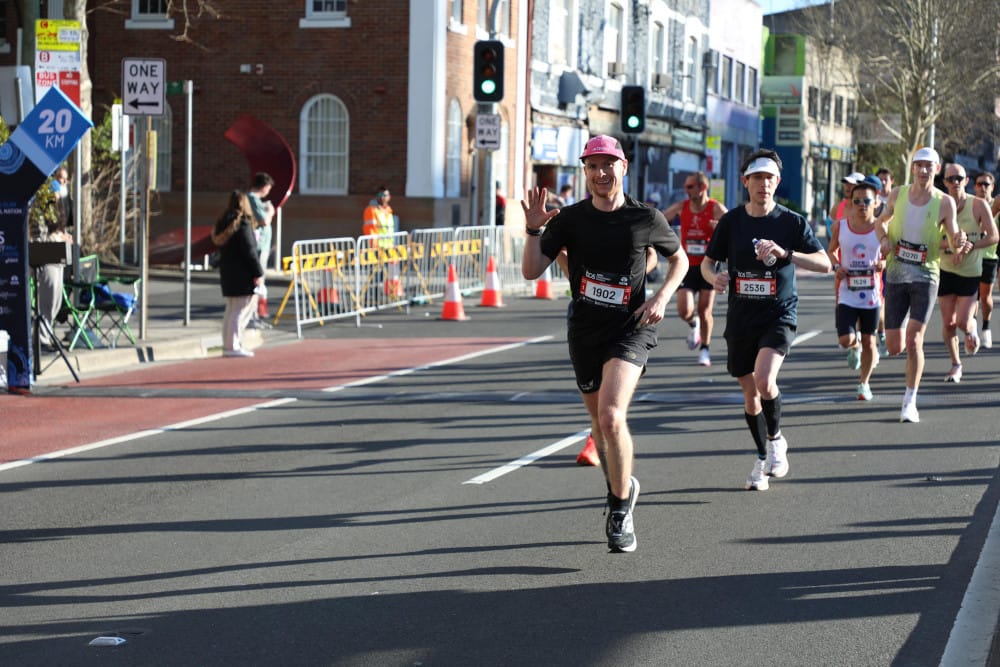
As we entered Centennial Park things momentarily got a little sketchy. I was running with lock laces to relieve pressure on my swollen foot. At km 25 or so I started to get a stabbing pain across the top of my foot. It was one of those pains that you know will instantly debilitate you if it were to get any worse. Fortunately it didn't, but it did momentarily humble me having spent the previous 25km laughing about how well things were going. There's a lesson in there somewhere - marathons are long, respect the distance.
I recall hearing Titanium by David Guetta pumping out of some speakers at around 35km. It's weird how you can so vividly remember specific moments in marathons, and well.. life. It did its job. I was so locked in, and so pumped.
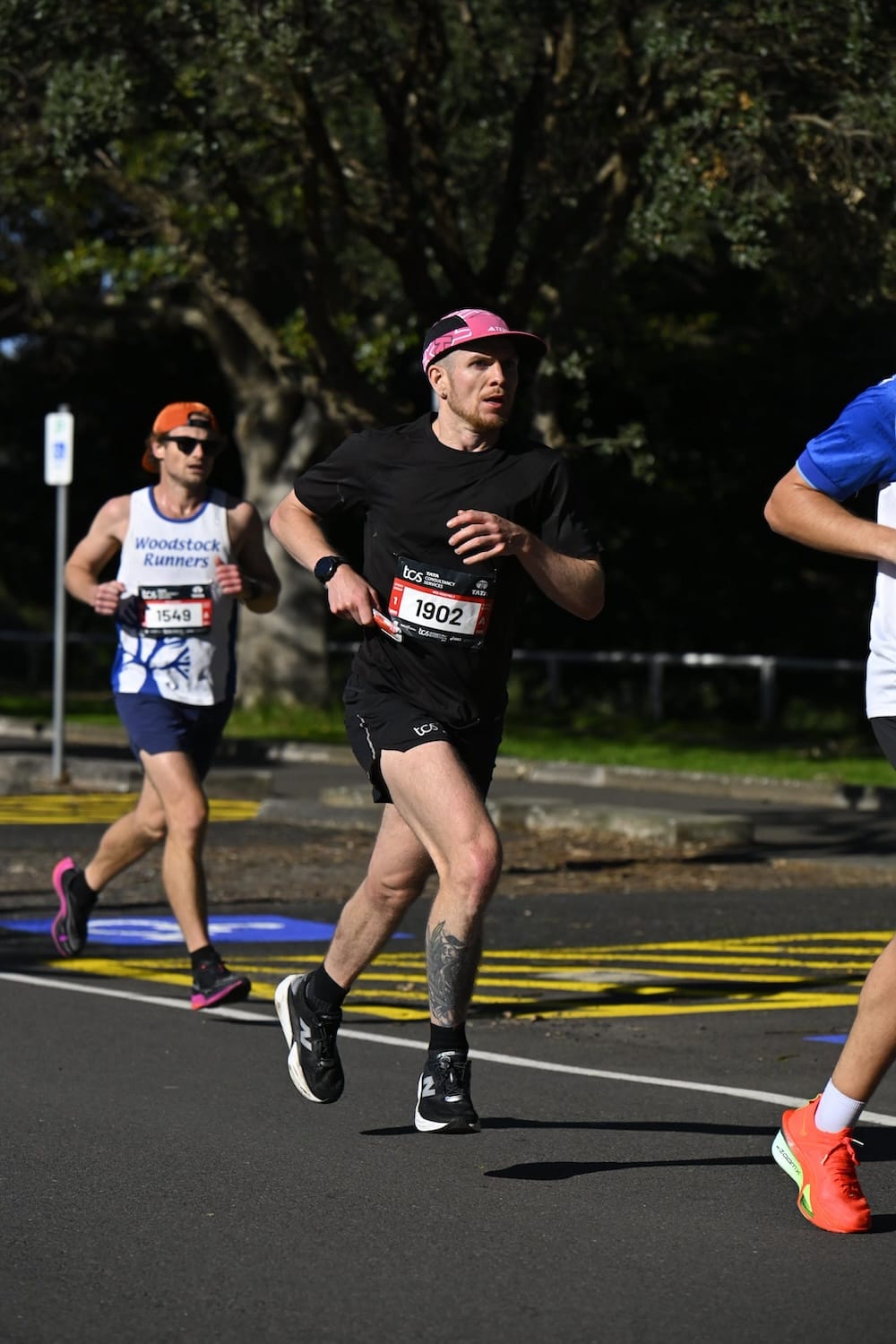
The other common marathon adage is that the marathon is a 20 mile warm up, followed by a 10k race. The final 10k is where the people who didn't prepare well enough or the people who pushed it too hard begin to crumble. I strolled through 20 miles. The only thing stressing me out was that my hand was sticky because my caffeine gel some miles earlier had exploded all over my hand.
As we descended back down George Street at km 38 I took another caffeine gel mainly as a psychological tool - I like to have something to do in the last 5k. It certainly didn't help from an energy point of view because 40km is where the pain hit. I was just really tired all of a sudden. Weird that. It's these moments when you start learning who you really are.
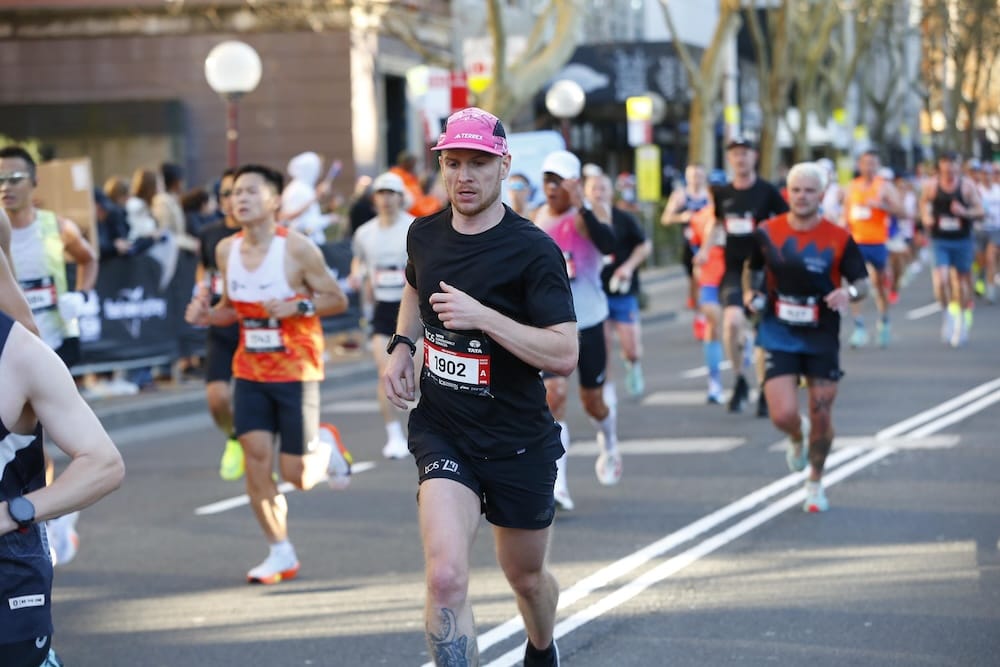
Lady Macquarie's chair is irritatingly hilly for that late in a marathon. I wasn't worried as I had a lot of time in the bank, but it certainly wasn't easy to maintain the pace. I opted to psyche myself up as there wasn't much crowd support.
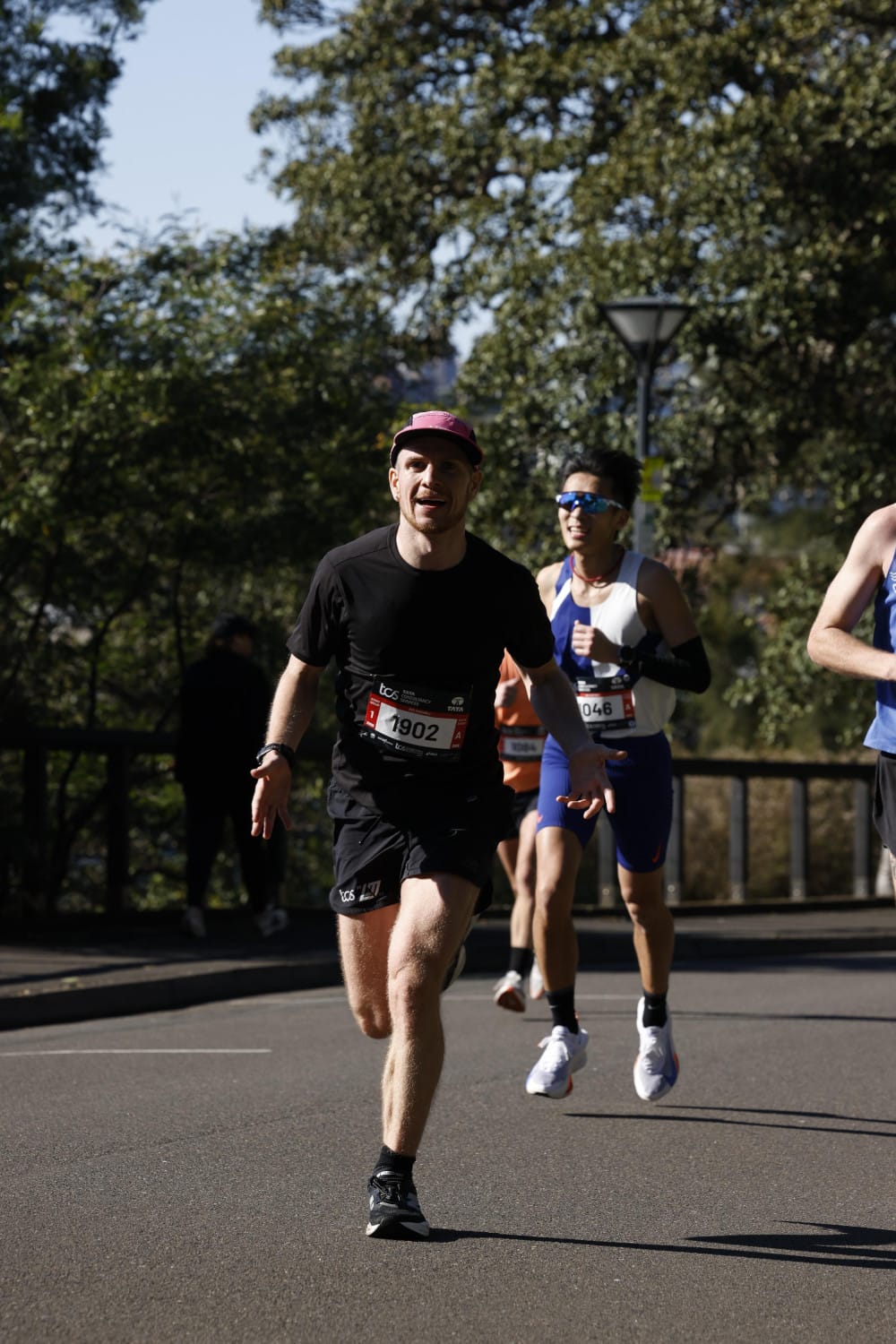
The final km to the finish line is a fairly steep descent. My legs were good, and the crowds were out in force.
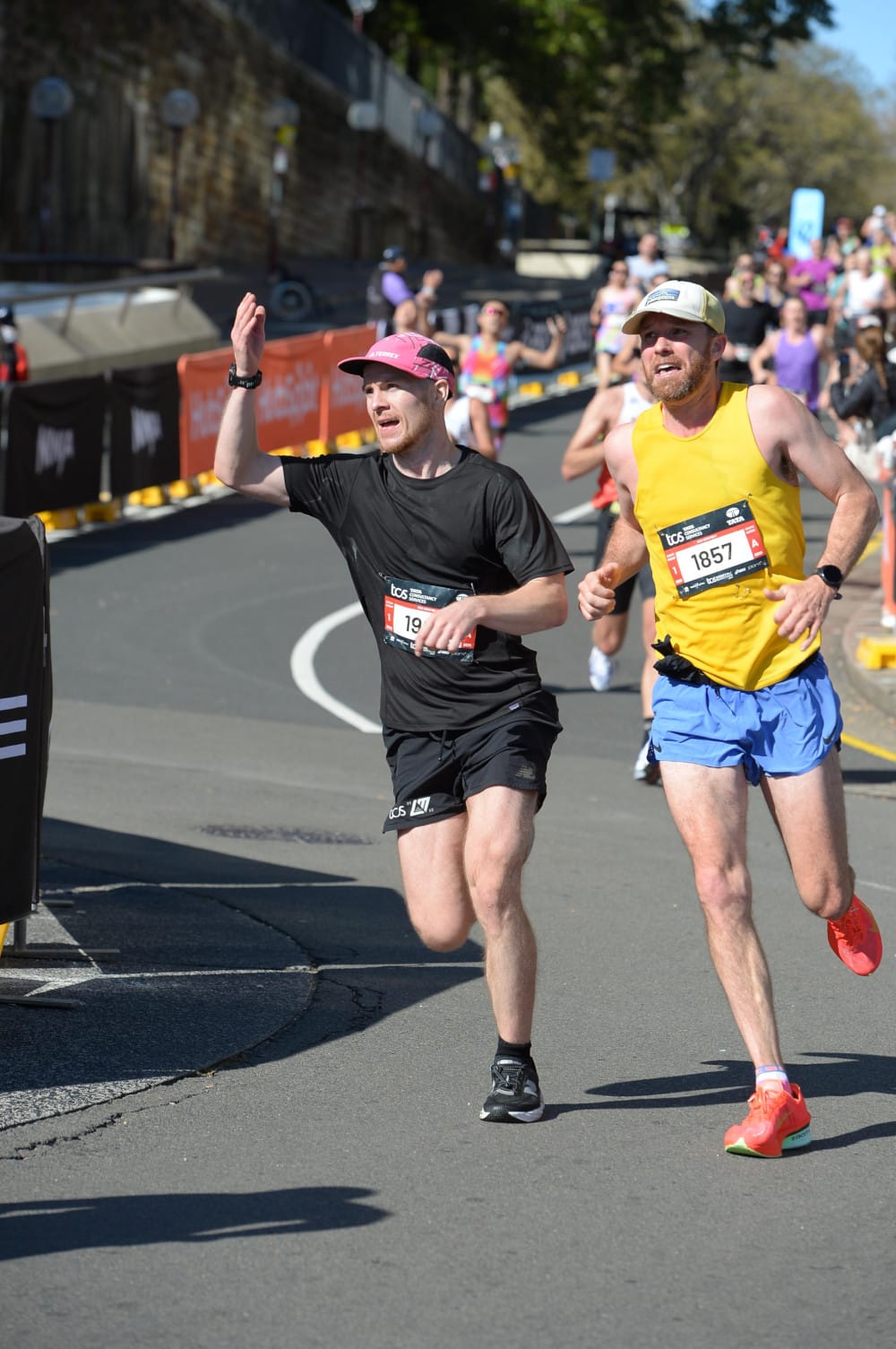
Apparently I ran most of the race in Zone 5, on the borderline of death. Adrenaline makes a huge difference in a race environment but I'm fairly certain this data is just.. wrong.
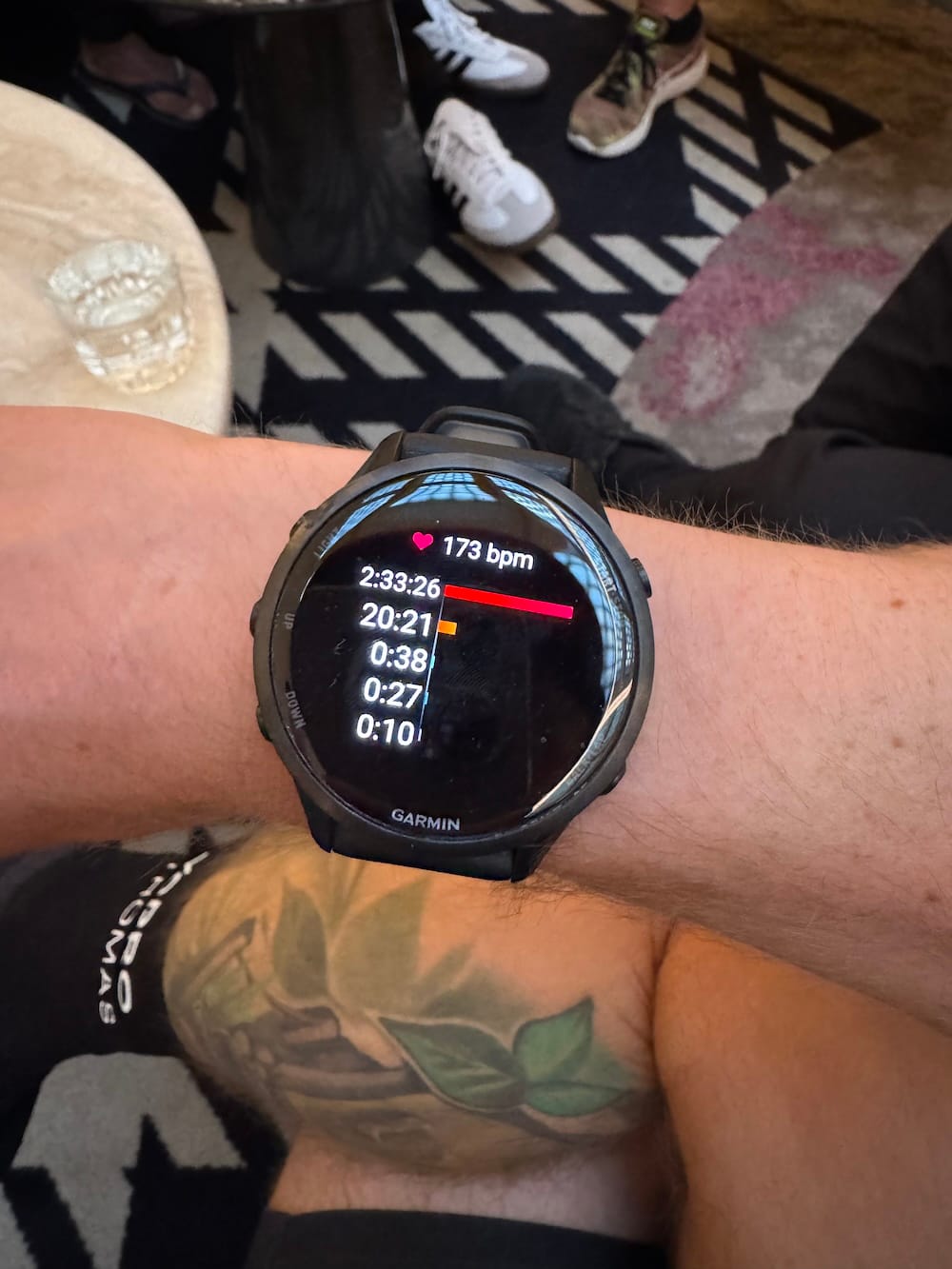
Post race
I don't normally drink, but some alcoholic beverages were consumed.
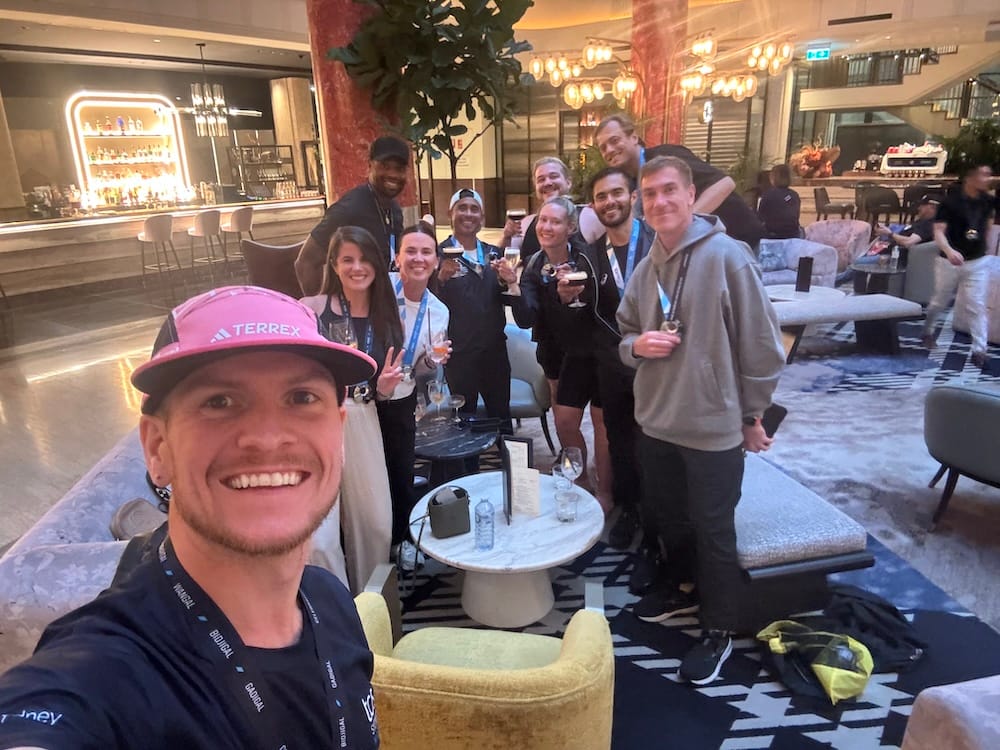
I had told the non-runners to meet me at the bar regardless of outcome. I kept my word.
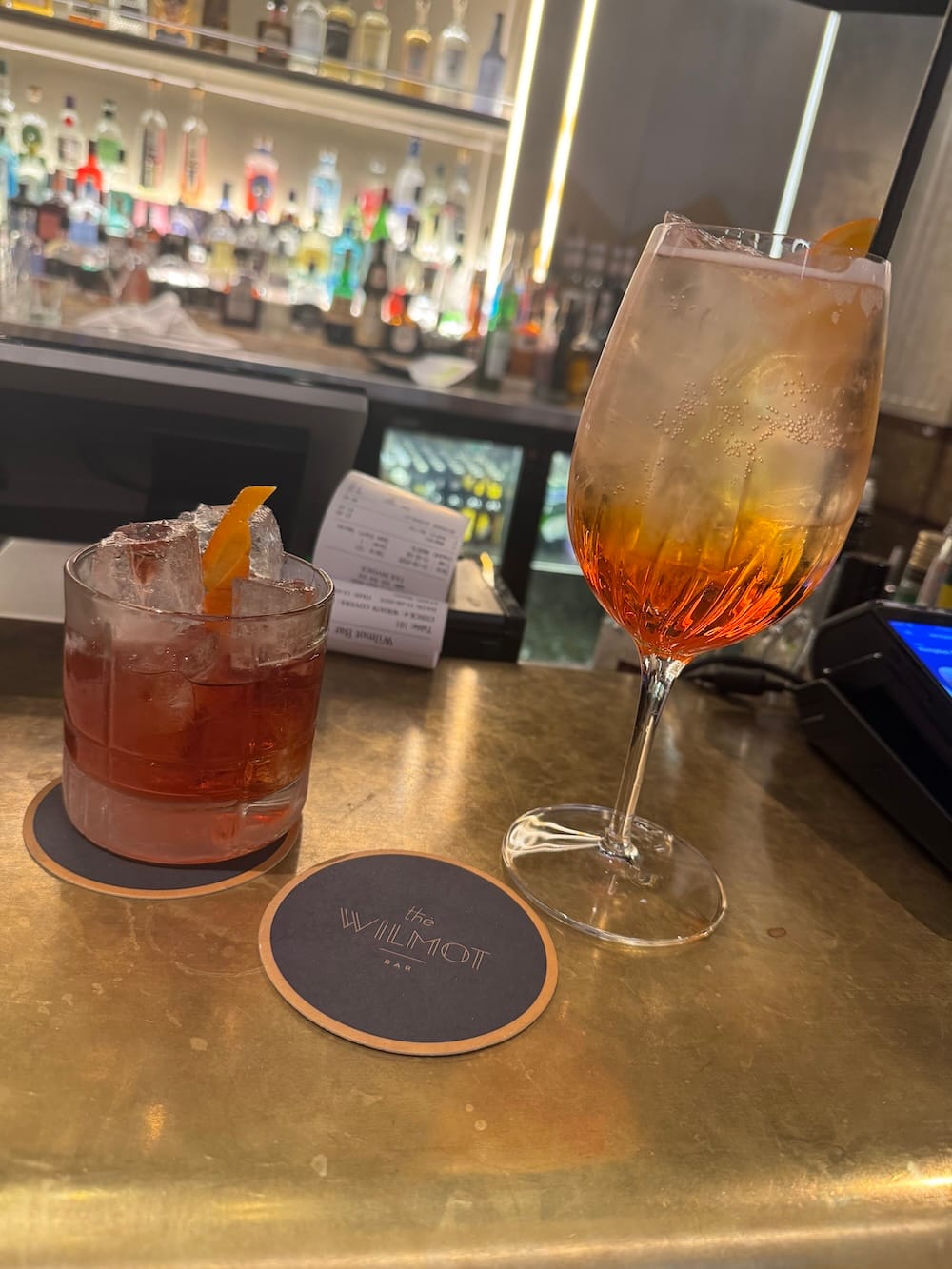
My Garmin trolled me..
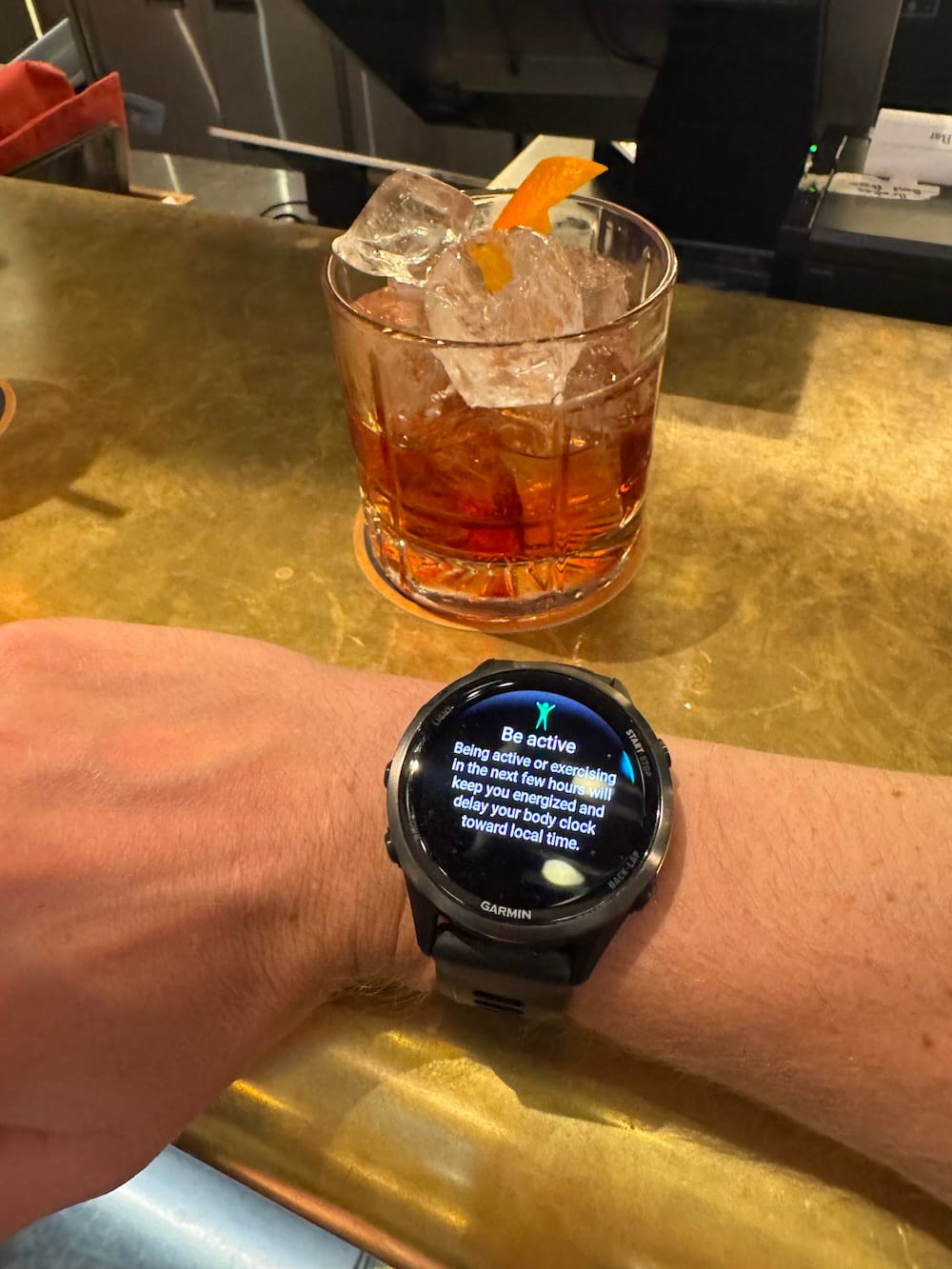
Then we were told that a group had grown too large and that we needed to split into smaller groups so as not to disturb other guests.
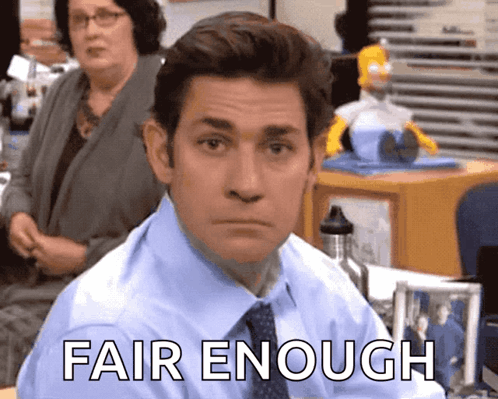
...
...
The next day we ended up on a hungover boat ride.
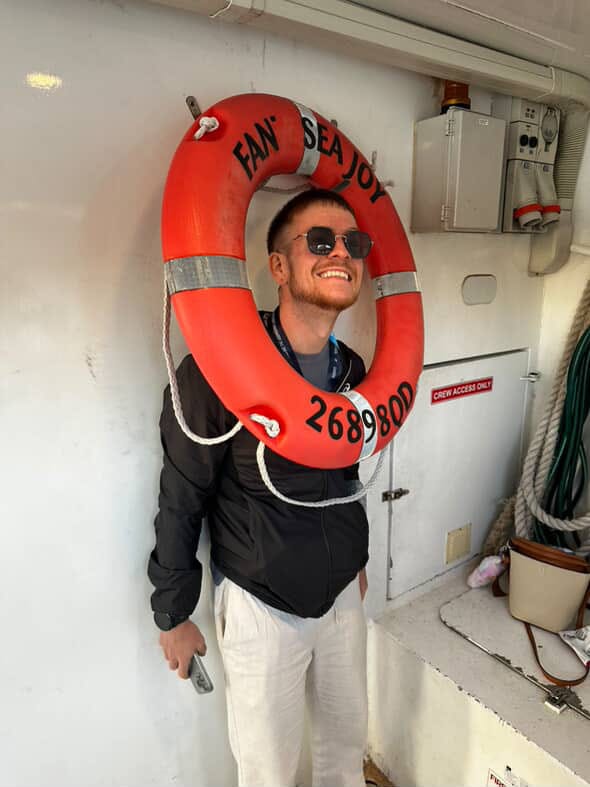
And then a few days later.. New Zealand.
This was always my plan. Lupe was also (coincidentally) going, but John and David changed their plans specifically because they were having so much fun (right guys?).
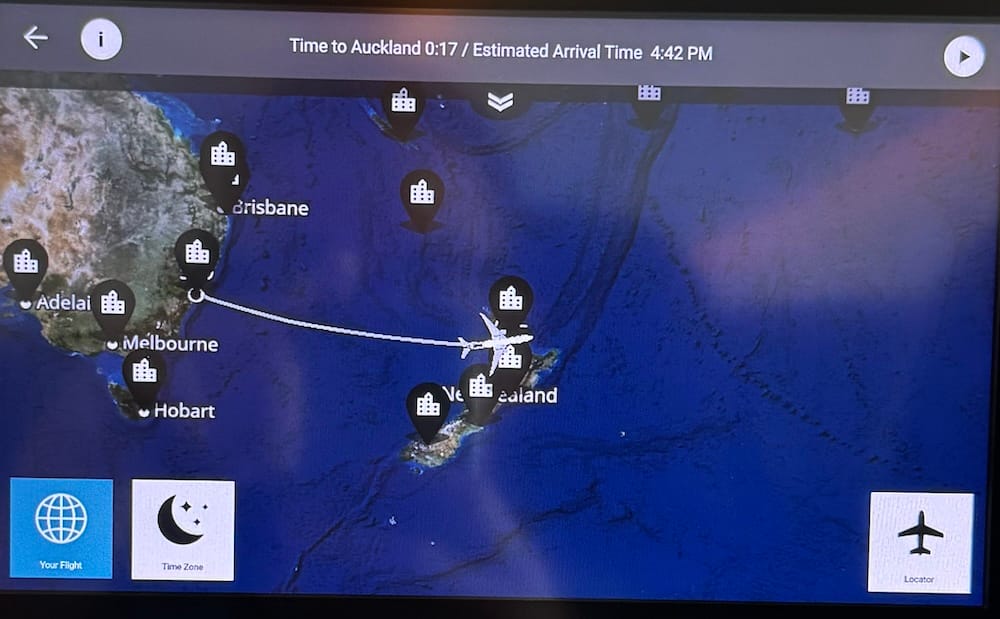
In New Zealand we ate great food, drank nice drinks, and scooted around. I was also able to do some of the aforementioned cool yoga balances at the top of Mount Eden overlooking Auckland.
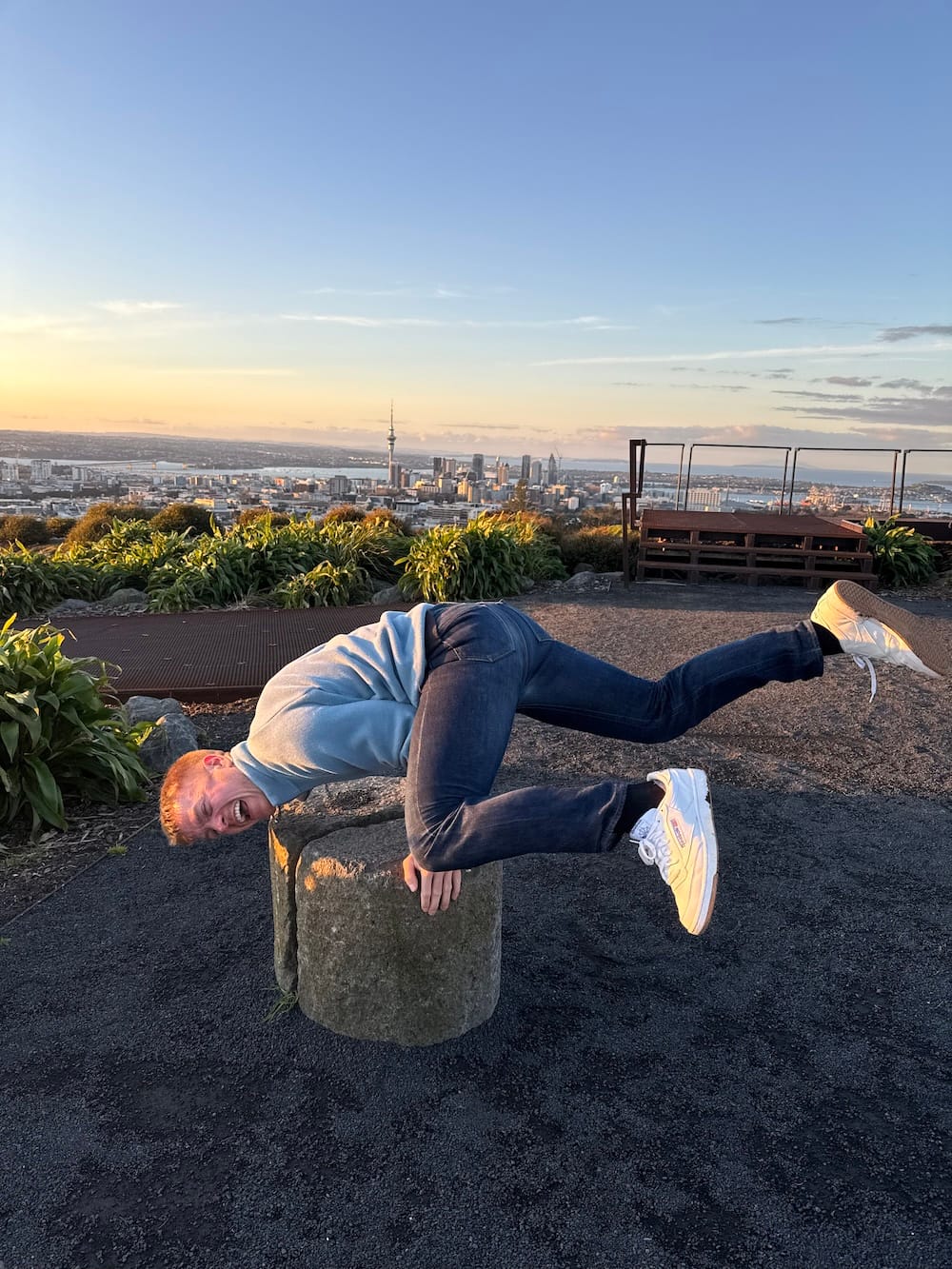
When everyone else left I obviously did a parkrun, and then I cycled around Waiheke.
Conclusion
I feel as though over the past decade I've grown massively as a person, with the crux Eureka! moments coming over the past few years. Slowly, slowly, then all at once.
I largely attribute running as being my platform for those changes - it acted as an escape, an opportunity to think, and an area to challenge myself.
I took a step back from running to make sure that I was chasing the things that I actually want. If you've never thought about what you actually want from life, you should.
I am proud of my running accomplishments. I think that I am an incredibly good runner, and this certainly wasn't always the case. I worked incredibly hard over a decade to run the perfect marathon.
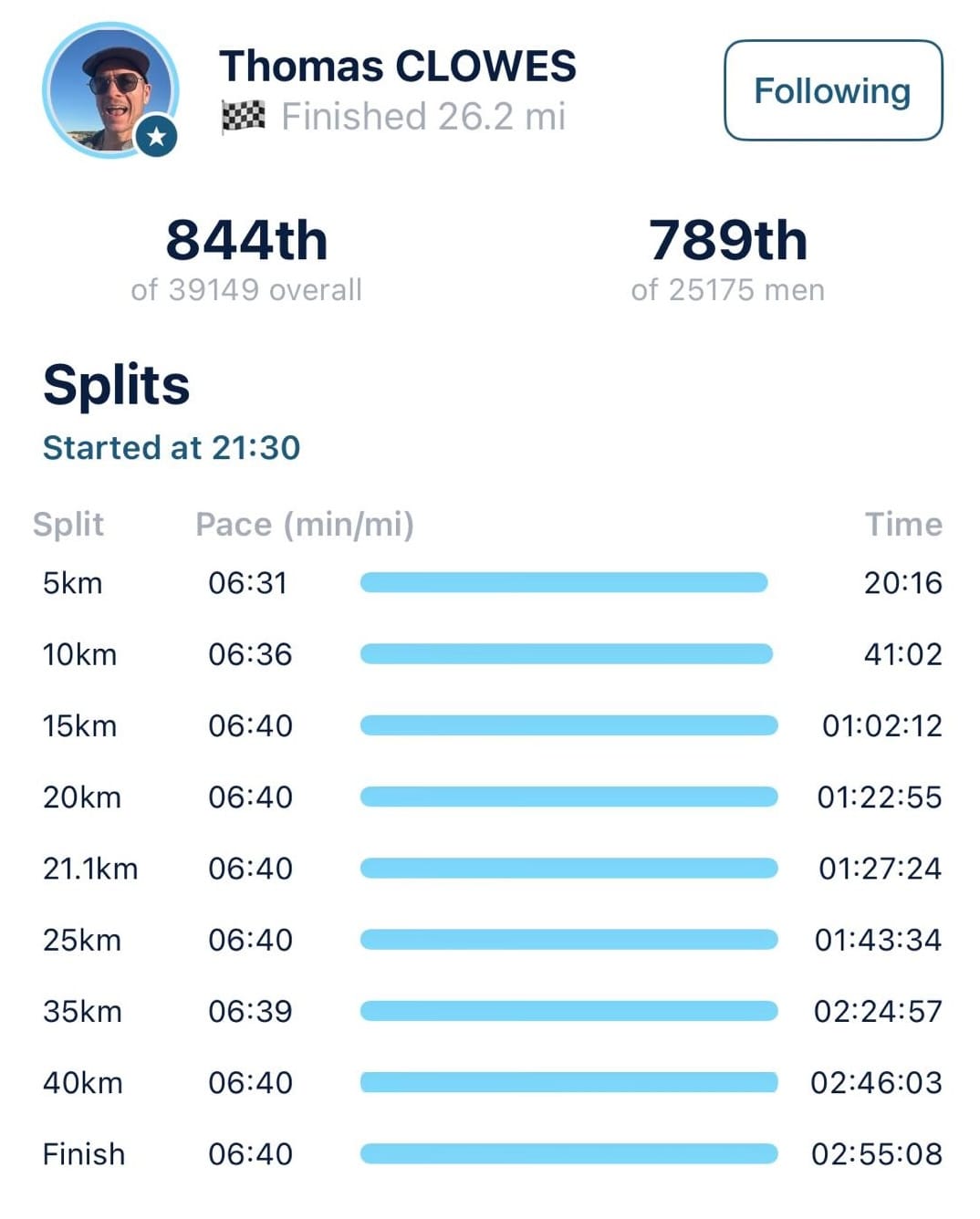
I'm one of just over 4,000 people on the planet to have done all seven major marathons.
Having a 2 prepending all of those times means everything to me. I've written about all of my major marathon experiences but I guess ultimately I am the only one who will ever fully know how much blood, sweat, tears, and emotional/physical pain went into making a cool looking table of times.
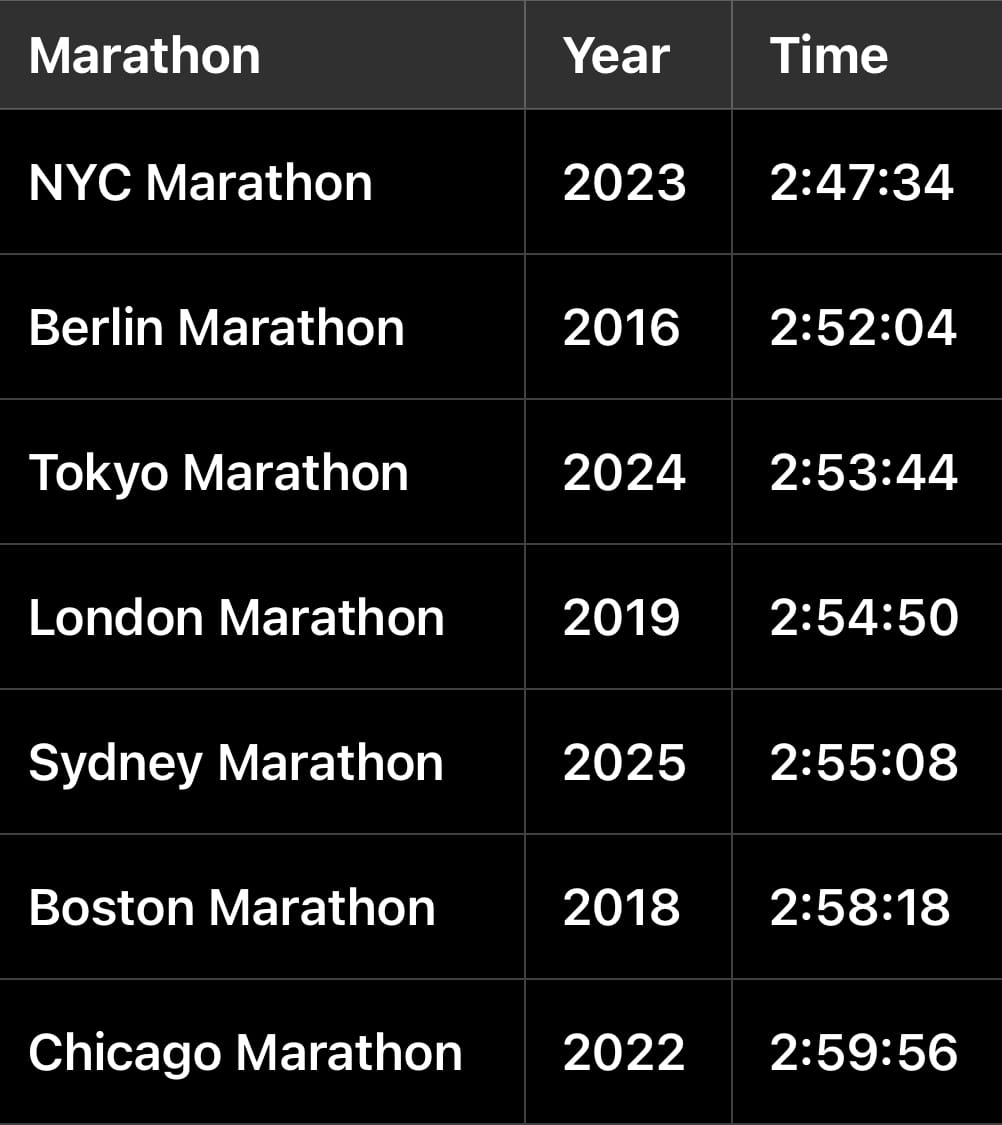
I was curious as to how many people had completed all 7 marathon majors, as well as how many had completed them all in under 3 hours. I am a software engineer.. so I wrote a script.
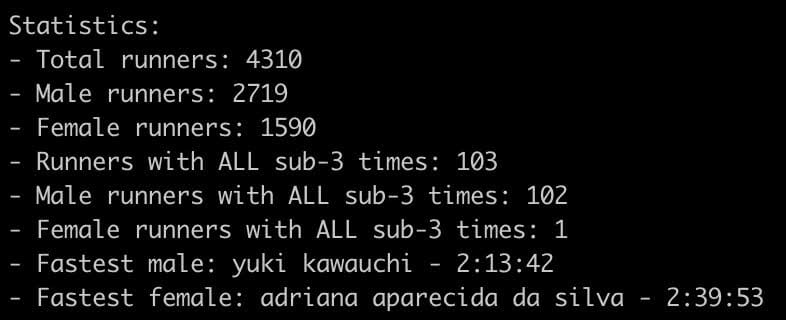
4,310 runners were completing their seventh star in Sydney. Of those finishers, 102 men and only 1 women have completed them all under three hours.
Apparently only 1% of the worlds population will run a marathon in their lifetime, but.. 103/8,246,517,558 = 0.00000001249%. That's a cool stat.
Sydney was perfect - the people, the place, the experience. The result was a bonus. The last few years have had their ups and downs, but moments like this make it all worthwhile. I’ll never forget how I felt skipping past the Opera House at the finish.
I'll finish this with a silly little GIF.
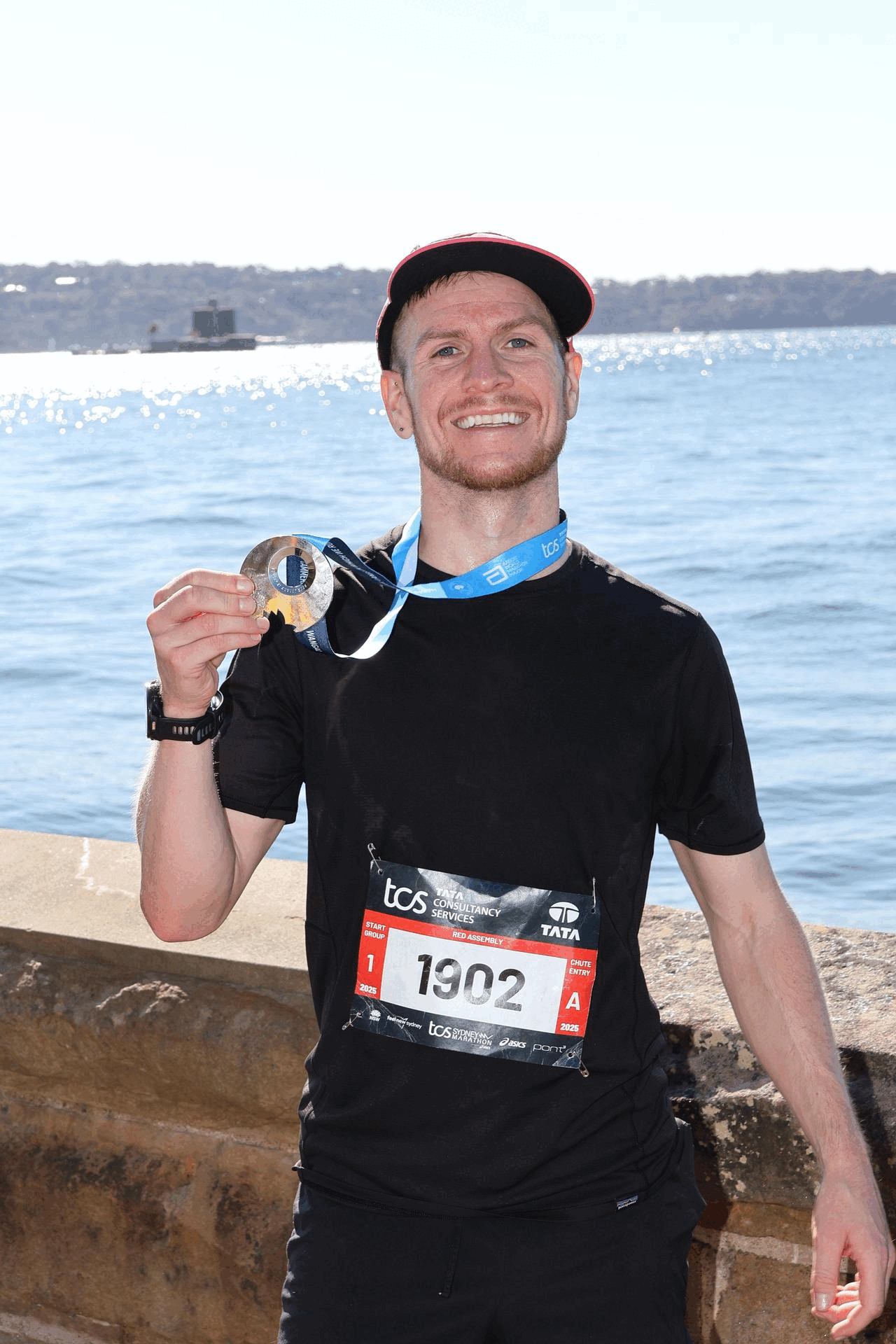
you don’t have to be extraordinary. You just have to care enough to keep going long after everyone else has stopped. Brett
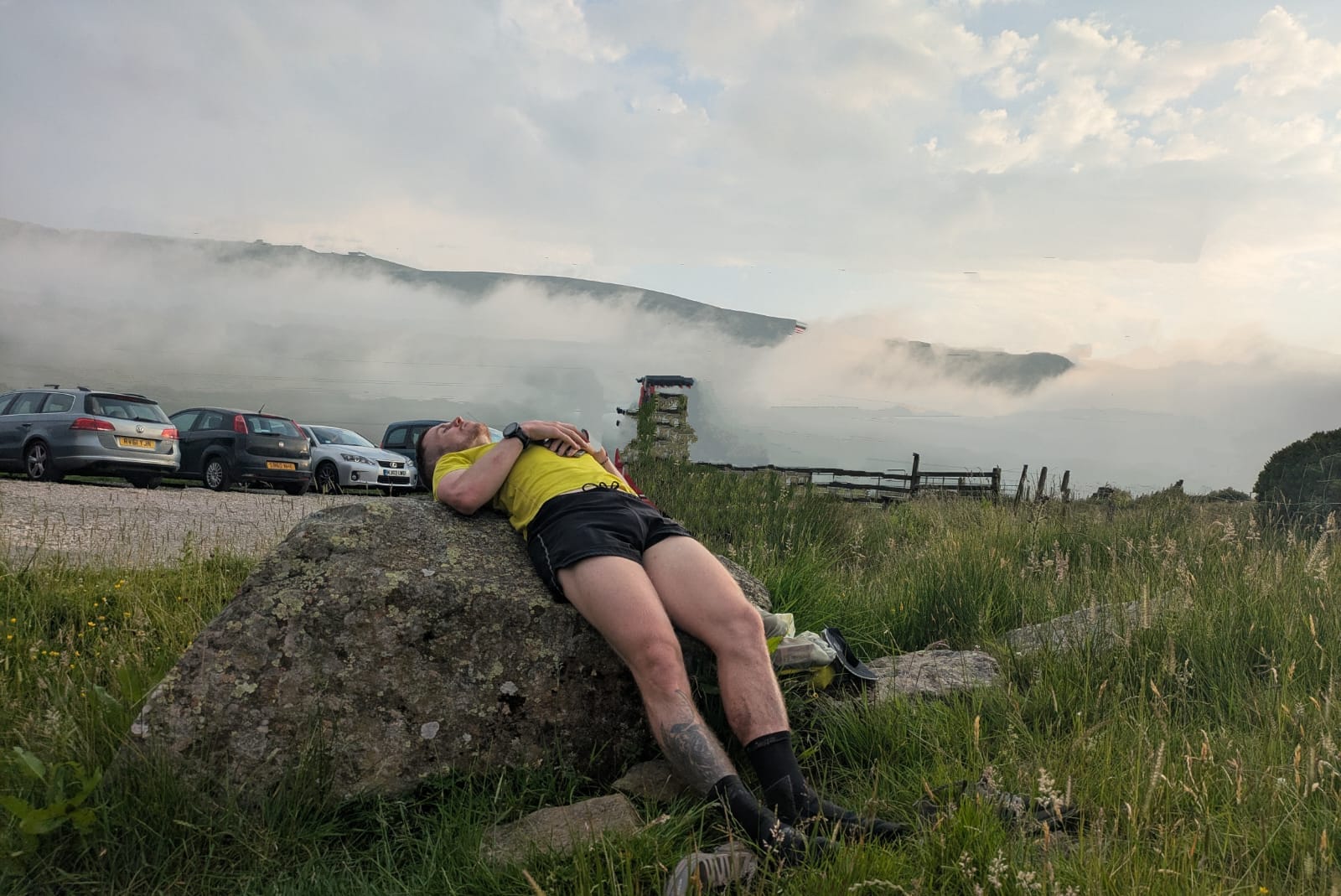
“One day you will wake up and there won't be any more time to do the things you've always wanted. Do it now.” Paulo Coelho